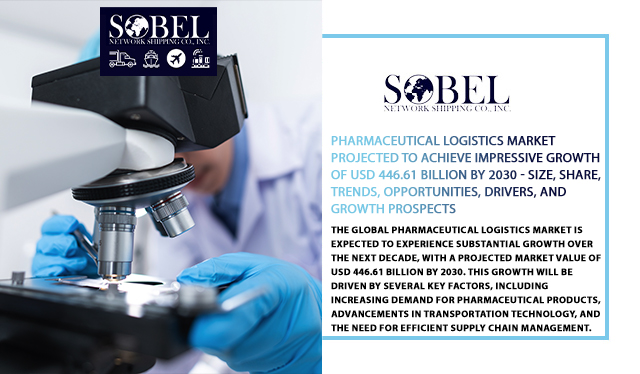The global pharmaceutical logistics market is expected to experience substantial growth over the next decade, with a projected market value of USD 446.61 billion by 2030. This growth will be driven by several key factors, including increasing demand for pharmaceutical products, advancements in transportation technology, and the need for efficient supply chain management.
Pharmaceutical logistics involves the planning, implementation, and control of the movement of pharmaceutical products throughout the supply chain. This includes everything from transportation and storage to packaging and distribution. With the global pharmaceutical industry expanding rapidly, the demand for reliable and efficient logistics solutions is higher than ever before.
The pharmaceutical logistics market is highly competitive, with numerous players operating in the space. Key companies include DHL International GmbH, FedEx Corporation, United Parcel Service, Inc., and DB Schenker. These companies are focused on expanding their global reach, investing in new technologies, and improving their service offerings to stay competitive in the market.
One of the key trends in the pharmaceutical logistics market is the increasing adoption of digital technologies. This includes the use of advanced analytics, artificial intelligence, and blockchain to improve supply chain visibility, reduce costs, and enhance the overall customer experience. Additionally, there is a growing focus on sustainability, with many logistics companies investing in eco-friendly solutions to reduce their environmental impact.
Overall, the outlook for the pharmaceutical logistics market is positive, with significant growth potential over the next decade. The key drivers of this growth include increasing demand for pharmaceutical products, advancements in transportation technology, and the adoption of digital solutions to improve supply chain management.


